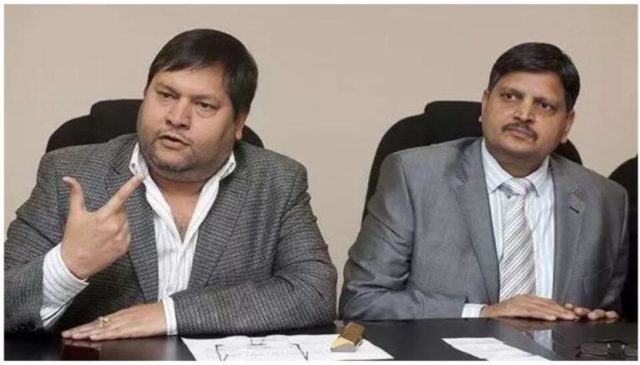The director at Shadow World Investigations, Paul Edward Holden, revealed how that over R49 billion of state funds had been disbursed in expenditure tainted by state capture.
Johannesburg – The state capture commission has heard explosive evidence from the director at Shadow World Investigations, Paul Edward Holden, who revealed that over R49 billion of state funds had been disbursed in expenditure tainted by state capture.
The Gupta enterprise, he estimated, earned just over R16bn of that money.
Holden, who gave evidence from an off-site location, explained how state funds were laundered through an “enormous and complex” manner via numerous Gupta-linked shell companies.
He simplified it, explaining to the commission that the state funds ended up in the Guptas’ clutches through three ways.
The first included state funds paid directly to Gupta enterprises that were contracted to state-owned enterprises and government projects.
The second was through payments made by contractors in what Holden described as “first level money-laundering activities”.
And the third was through kickbacks paid directly to Gupta enterprises located in Hong Kong, China and Dubai.
He said Shadow World Investigations discovered contracts riddled with deviations, lack of competitive bidding and clear irregularities.
According to Holden’s evidence, Eskom, Transnet and the Free State provincial government were the main cash cows for the Gupta enterprise.
This included seven contracts involving the Free State government.
In one contract, Holden said the Free State Department of Agriculture and Rural Development awarded a contract for engineering services to Tsebo Business Intelligence in June 2012. He told the commission that the contract was “manifestly irregular” because the Bid Evaluation Committee ranked two different contractors higher, but Tsebo Business Intelligence was awarded the contract.
Tsebo Business Intelligence then made multiple payments to Innova Management Solutions which was owned by Chwayita Mabude.
However, Holden said it appeared that Innova Management Solutions was managed by known Gupta associates Salim Essa and Ashok Narayan. Further, Holden said that Innova’s bank statements showed that it didn’t incur any of the usual costs associated with a functioning business. According to Holden, prior to payments from Tsebo Business Intelligence, Innova only had three transactions take place in its banking facility, including a R200 deposit to open the account and two monthly fee debits.
In total, R8.9 million was paid to Aerohaven. In 2013, that money was paid back to Innova and then transferred to another Gupta-linked enterprise, Gateway Limited, Holden said.
He said based on his analysis, a little over R1.2bn was paid to first level laundry entities drawn from state funds.
ANC deputy secretary-general Jesse Duarte’s ex-husband, John Duarte, was one of the people whose name appeared in the Gupta money trail evidence.
Before he began his testimony, Holden corrected Duarte’s relationship, telling evidence-leader advocate Matthew Chaskalson that John was Jessie’s ex-husband.
The commission heard evidence of how Combined Private Investigations (CPI) received numerous contracts from state-owned enterprises between 2013 and 2016. CPI allegedly made monthly payments to Gupta-linked shell companies that were used to “wash” state funds. These “laundry” companies included Chivita, Homix, Forsure Consultants and Medjoul.
Holden said initially the monthly payments totalled R500 000, although this increased to R1 459 200 a month from October 2013 and to R1 575 760 from November 17, 2015 until the final payment at the end of January 2016.
Holden testified that CPI was paid a total of R151.6 million by Transnet.
Holden said that upon investigation, CPI alleged that Gupta-associate Salim Essa approached them with an indication he could help further its business. Essa was allegedly working on behalf of Chivita.
CPI alleged that Essa worked alongside John Duarte.
Holden revealed that over 200 companies had been implicated in the alleged money laundering of funds linked to state capture corruption.
Holden gave evidence based on “thousands” of bank statements and transactions.
His report, on which is evidence is based, examined the total cost of state contracts afflicted by state capture and the total amounts paid irregularly and directly to the Gupta enterprise by the state.
Holden’s report also set out the manner in which the Gupta enterprise made use of funds accrued through criminal activity, including how these funds were cycled and used to purchase significant assets such as Optimum Holdings – the parent company to Optimum Coal Mine – and to ensure the liquidity of the Gupta’s legitimate businesses, such as Sahara Computers.
The commission previously heard from Holden that the fugitive and controversial Gupta family laundered R287m received for the Estina dairy farm project in a complex manner to make it appear as if they had tripled the amount.








